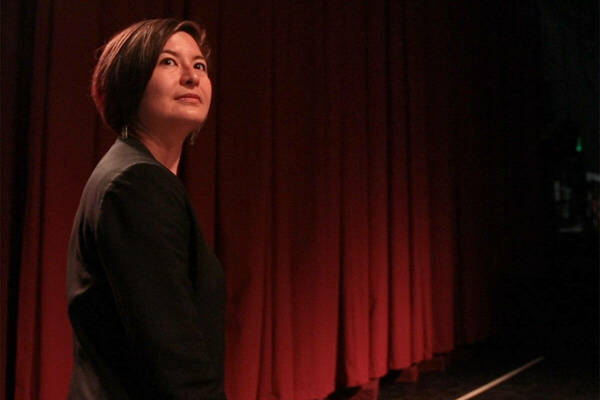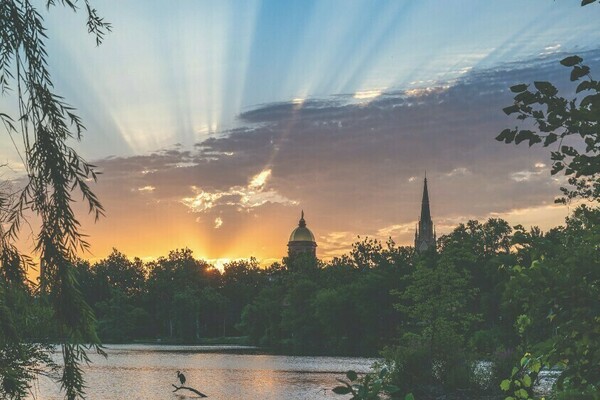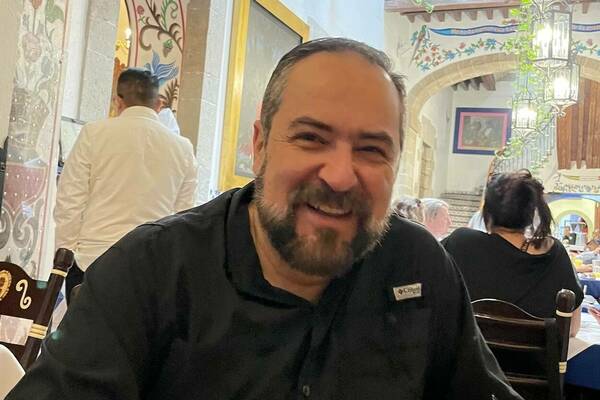Daniel Machiela is an associate professor and director of the Ph.D. program in the Department of Theology at the University of Notre Dame. His area of research focuses on the Dead Sea Scrolls, specifically those written in Aramaic.
In his work, Machiela finds how understudied Aramaic scrolls re-interpret the Old Testament, which can provide insight into how the Old Testament was understood and shared. Machiela has also found that the concerns of people who lived more than 2,000 years ago were not so different from the concerns that we have today.
Video transcription:
Daniel Machiela: The Dead Sea Scrolls are roughly 1,000 manuscripts, which were discovered in the Judean desert alongside the Dead Sea. The scrolls that were studied first were really those that were biblical scrolls and Hebrew scrolls written by a group of Jews in the ancient world from around the time of the New Testament.
Well, there was another group of scrolls alongside of those, which were sort of left to the side in the beginning and those were the scrolls written in Aramaic.
I work on the Aramaic literature from among the Dead Sea Scrolls, and that's exciting because we're just really starting to figure out what's there and how those Aramaic texts fit into the picture.
Many of these texts interpret what we know as the Old Testament. So, for example, my dissertation was written on one of the scrolls, the Aramaic scrolls, called the Genesis Apocryphon. This scroll rewrites the book of Genesis in Aramaic, but it does so in a way that shifts some events around, expands the story. So, for example, Noah in the Genesis Apocryphon is having dreams, and Abraham, when he goes into Egypt with Sarah, this story is greatly expanded to show how great Abraham was.
It really allows us a glimpse, which we didn't have before, of how the Old Testament was being read, how it was being understood, what themes were important to the people, also leading up to the New Testament and early Christianity.
Well, one of the things that really surprised me in looking at these scrolls was that the concerns that they had are not so different from the concerns that we have today. For example, a part of what was going on in the world then was there was a huge shakeup in world empires. The Persians had been ruling — all Jews were really subjects of the Persian Empire — that empire had just been defeated by the Greeks. And so what you had is a huge amount of cultural exchange going on at that point.
And you can see in much of this Aramaic literature that they're grappling with this cultural exchange and trying to figure out where does the revelation that we have received as the Jewish people fit into this world stage.
And I think we're grappling with those sorts of things still today. We're in a globalized society where there are all sorts of cultures crashing together at all times. And for people of faith who claim these texts, the text of the Bible, as their own text, it's often difficult to navigate how that relates to the world that we're also part of just as human beings today.
My book, which is called The Aramaic Scrolls from the Qumran Caves and is a handbook to the Aramaic Dead Sea Scrolls, takes the first comprehensive look at the entire corpus of Aramaic literature from Qumran. And it's the first time this has been done and so this was getting all of the pieces on the table.
I've set the foundation for doing further work on the corpus which will be focused much more on the themes, what these scrolls are seeking to illuminate or teach, theological motifs in these scrolls, and really trying to sketch out the ideal or the picture of Judaism that these scrolls present to us, which is a new picture which we didn't have before.
Notre Dame has a very established name with study of the Dead Sea Scrolls and really study of Judaism and Christianity in the ancient world. That was because of great scholars who worked here before, like James VanderKam, Eugene Ulrich, Hindy Najman, Gary Anderson. These scholars really have made a huge impact on the field and have established Notre Dame as just one of the great places in the world to be able to study ancient Judaism and the Dead Sea Scrolls. So I feel really fortunate to be able to come to Notre Dame and to help contribute in my way to continuing that legacy.


